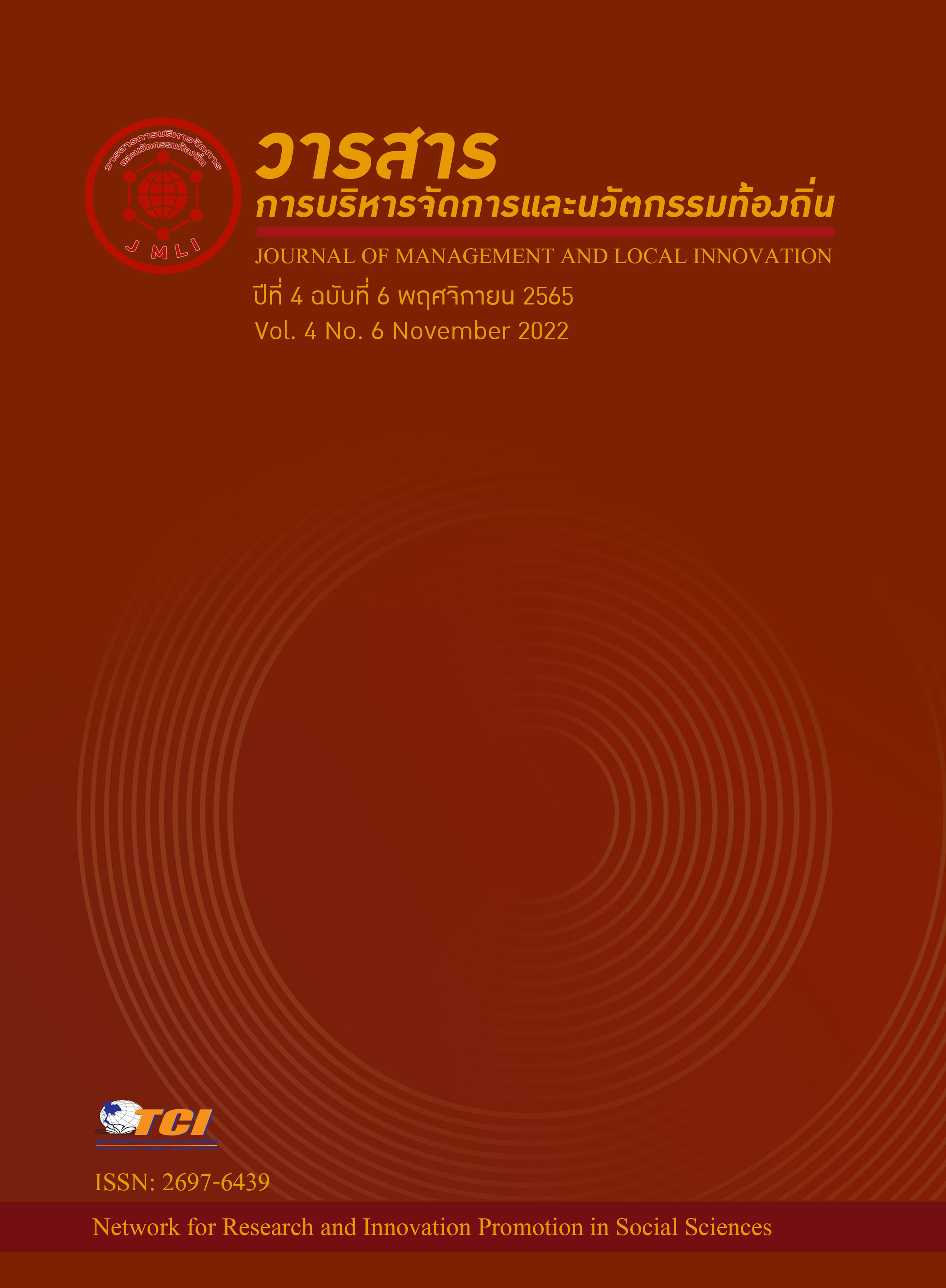The Guidelines for Enhancing Personnel Motivation in Work Performance Based on Saṅgahavatthu of Schools under Nakhon Sawan Secondary Educational Service Area Office 2
Keywords:
Motivation, Performance, SaṅgahavatthuAbstract
The study consisted of the following objectives: 1. to investigate the personnel motivation in work performance of schools under Nakhon Sawan Secondary Educational Service Area Office 2; 2. to compare opinions towards personnel motivation in work performance of schools under Nakhon Sawan Secondary Educational Service Area Office 2; and 3. to find the guidelines for enhancing personnel motivation in work performance based on Saṅgahavatthu of schools under Nakhon Sawan Secondary Educational Service Area Office 2. The study used a mixed-method approach that included both qualitative and quantitative methods. The quantitative data were collected using a questionnaire with a reliability of 0.97 and a sample size of 313 persons. The obtained quantitative data were analyzed using frequency, percentage, mean, and standard deviation. The mean and standard deviation were utilized in the comparison. The qualitative data were collected through semi-structured interviews with 9 key informants. The obtained qualitative data were analyzed by content analysis. From the study, the following results are found: (1) The conditions of personnel motivation in work performance of schools under Nakhon Sawan Secondary Educational Service Area Office 2 are overall at a high level (x̄ = 4.29, S.D. = 0.36). The aspect with the highest level of mean is income (x̄ = 4.46, S.D. = 0.55), while private life has least level of mean (x̄ = 4.45, S.D. = 0.49). (2) From comparing opinions towards personnel motivation in work performance of schools under Nakhon Sawan Secondary Educational Service Area Office 2 classified by personal factors, the findings revealed that personnel of different positions, ages, and educational levels have no differences in their opinions on personnel motivation in work performance; therefore, denying the null hypothesis. (3) The guidelines for enhancing personnel motivation in work performance based on Saṅgahavatthu of schools under Nakhon Sawan Secondary Educational Service Area Office 2 are: Administrators should focus on the following motivator factors: 1) Dāna refers to providing facility for the success of work, refers to opportunity to work equally, 2) Piyavacā refers to creative speech, refers to motivational speech to teachers and personnel, refers to providing guidance for career advancement, 3) Atthacariyā refers to being leader in work performance, refers to self-conduct as an example, refers to sacrifice and 4) Samānattatā refers to providing knowledge in various occasions constantly. Administrators should focus on the following hygiene factors: 1) Dāna refers to the establishment of clear management system, refers to creating a work environment that is favorable to performance, 2) Piyavacā refers to motivation for work performance, refers to giving a fair salary, refers to truthful speech, 3) Atthacariyā refers to the establishment of development plan on a daily basis, refers to being amicable and comfortable at work, and 4) Samānattatā refers to adherence to regulations and work standard, refers to being reliable for subordinates.


